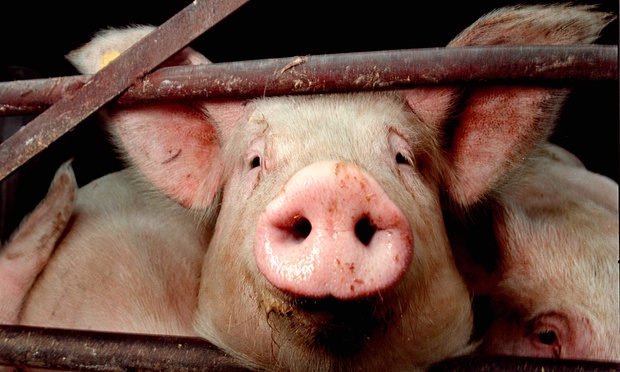Choosing to live a life with less in an eco-friendly way goes far beyond what you consume, what you drive or whether you use plastic bags. It can also be drastically affected by what you choose to eat – or avoid eating, for that matter. Yep, you guessed it: I’m talking about meat.
In addition to being an unapologetic hippie, a toy denier and one step away from joining a commune and singing Kumbaya, I am also vegetarian – just like 4 million others in the UK, 7.3 million in the US, and 1.3 million in my home and native land of Canada.
As the rush of the Christmas season fades away and New Year’s Day rapidly looms, consider avoiding resolutions you won’t keep (are you really going to the gym five times a week?) and try a meatless (or even meat-reduced) diet instead. You may find that the benefits work for you, just like they work for millions of others around the globe.
Why? A meatless diet boasts improved overall health, reduces grocery bills and provides a helpful boost to our struggling ecosystem. I’ll readily admit, however, that turning my back on hot dogs and chicken breasts wasn’t initially an environmental choice for me, but an ethical one. As a curious 18-year-old, I researched how a pig becomes a pork chop and it turned my stomach. I couldn’t face the true cost of my diet – the unimaginable cruelty, suffering and loss of life simply so I could enjoy a hamburger.
The horrifying conditions endured by the animals we eat is still the biggest motivating factor in my choice to be a vegetarian, but in the past few years the effects of a meatless diet have been shown to benefit far more than the collective consciences of bleeding hearts like me.
It turns out that raising animals for slaughter isn’t just bad for the unlucky cows, pigs, chickens and lambs; studies are increasingly shown that it takes a drastic toll on the environment too. As a result, someone who eats a diet high in meat accounts for almost double the climate-killing carbon dioxide emissions of a typical vegetarian.
When you break it down further into environmental cost per calorie, the impact of beef, for example, is monstrous. Raising beef cattle requires 160 times more land and causes 11 times more greenhouse gas emissions when compared to crops like wheat, rice or potatoes (finally – a reason to ditch the carb-free diet!).
The environmental benefits of eliminating or even reducing meat from your diet are compelling, but don’t think you have to ditch the bacon for purely altruistic motives – the benefits will quickly kick back to you too.
Numerous studies demonstrate that vegetarians have lower incidences of heart disease, lower BMI and lower blood pressure than their meat-eating counterparts. And according to the World Cancer Research Fund, if you stop eating red meat, you’ll also be avoiding the only convincing dietary association with colon cancer.
Of course, I can sit here spouting statistics all day demonstrating the benefits of a vegetarian diet to the environment and to you – they certainly exist in spades – but is that really likely to change your mind? Are numbers and percentage points enough to change how your dinner table looks after 30, 40 or 50 years?
Change can be terrifying, even when (or perhaps especially when) you know it’s good for you. For many, the idea of a table without meat simply looks like a whole lot of side dishes. Vegetables have long been relegated to boring lead-ups to the main event, middling sidekicks to beefy superheros – delicious, maybe, but just not quite enough. And for men especially, giving up meat and labelling themselves a capital-V vegetarian feels so drastic, like adopting a whole new persona, or wearing a wild new wardrobe that doesn’t quite fit.
If the thought of giving up meat whole-hog overwhelms you, don’t feel like you need to go all-in right from the start. Try just dipping your toe in at first. As with all environmental endeavors, it pays to start small and keep it sustainable. The online world is rich with hearty, filling and scrumptious recipes with nary an ounce of meat required, so try just one or two meatless meals a week to start. A few of my favourites are black bean and spinach enchiladas, spaghetti squash chow mein, and an Asian quinoa slaw dish that is easily 10 times as good as the name makes it sound.
All of your tiny choices add up – even decreasing your meat intake by just one less burger a week can result in the same environmental benefit as taking your car off the road for 320 miles.
You don’t need to make drastic change in your life in order to create change in the world around you, and lady magazines be damned, you don’t need a whole new you as we enter the new year.
Let’s throw that nonsense out the window and settle for a few new traditions instead. A little less shopping here, a few more reusable bags there, a meatless meal on the table a few times a week – and the knowledge that you are making a difference.
Fuente: www.theguardian.com
